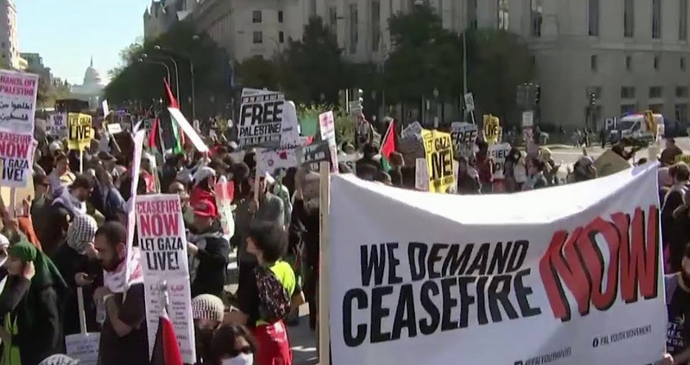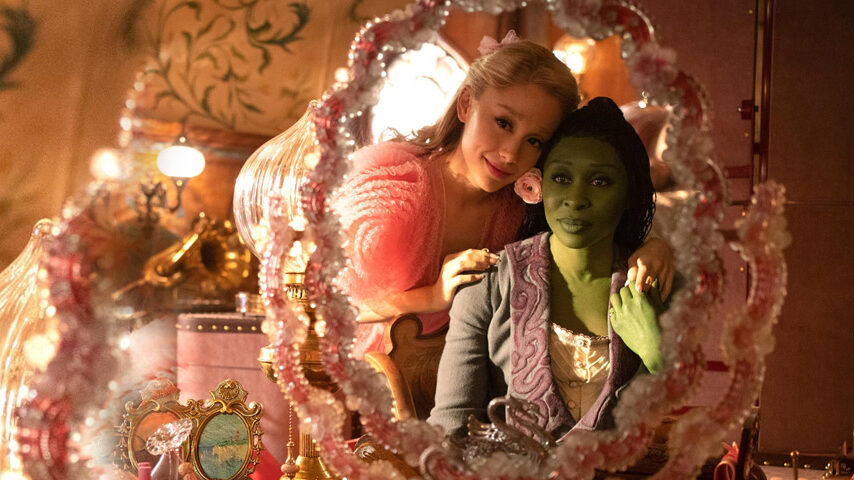By Winslow Myers
Photos: YouTube Screenshots
It’s a queasy feeling to experience up close on the nightly news the further turn of a 70-year-old futile cycle of violence. We sit in our comfortable armchairs in front of the television, voyeurs of the living hell that Hamas and the Israeli Defense Force (IDF) have brought down upon innocent citizens in Israel and Gaza.
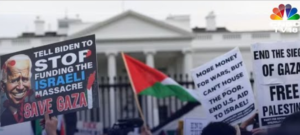
Intrusive cameras take us right to the heart of the agony, the rubble of blasted concrete, the blood of children smeared across hospital floors, the shrieks of matriarchs on both sides mourning the death or kidnapping of whole families. The world is so interconnected that we news junkies cannot help feeling—complicit. My tax dollars help to pay for the avalanche of undiscriminating vengeance unleashed by the Israeli Defense Forces.
When spokespeople for the IDF present their rationalizations for the bombing, there’s something a little strange in their eyes. They don’t seem altogether in their right mind, as maybe we Americans weren’t either in the weeks following 9/11. The trauma of October 7, followed by the conundrum of trying to defeat an enemy that holds so many Israelis hostage, along with the embarrassing failure to heed the signs of what was coming—these seem to have narrowed the Israeli military vision of strategic self-interest to a ruthless, helpless lashing out, even as Netanyahu urges his allies to “stand with civilization.”
American officials also seem slightly off and over-scripted when they do their best to rationalize a form of “civilization” that has become supremely uncivilized.
Our well-intentioned officials and well-informed pundits caution restraint and creative thinking, only to be ignored almost completely by the Israeli government. It is wrenching to watch descendants of those who lived through or died in the Holocaust begin to travel down a similar near-genocidal road for the sake of re-establishing the vaunted Israeli reputation for ironclad deterrence.
Meanwhile Israel writhes in its apparent straitjacket of alternatives. Why would one not expect to see a certain nervous paranoia in the eyes of their generals after what Hamas did? As the late not-so-great Henry Kissinger said, even paranoiacs have real enemies.
Whether as participants or spectators, we have all known since we were schoolchildren exactly what a cycle of violence is, why it happens, and how it perpetuates and never resolves underlying conflict. Inevitably woven into the cycle is a failure to see the “other” as just as human as ourselves.
Extremists on both sides contesting the same land carry dehumanization to the end point, the intent to utterly annihilate the other. Simplistic bumper stickers like “from the river to the sea” become the same battle-cry for both settlers and those who deny Israel the right to exist. The extremes end up resembling each other all too closely.
But the familiarity of such cycles shows that a way out, however difficult, must be possible: it begins with a realization that what both sides are doing, however different their motivations and self-justifying rationales, is not working and will never work. Hamas cannot destroy Israel; Israel cannot wipe out Hamas.
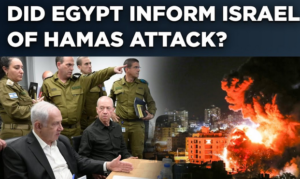
Hamas represents an abhorrent idea—the end of Israel altogether. But the idea itself cannot be killed; it can only be transcended by some less nihilist idea—such as a two-state solution or some creative new arrangement yet unarticulated.
Talk of humans as “animals” is not helpful. Listening for the common humanity in the stories of the “other” is the only way through—people who initiate connections across boundaries that marginalize the extremes, people who resist becoming identical in fruitless violence.
For many years an indefatigable California activist, Libby Traubman, has been inviting American Jews and Palestinians to break bread together and share stories.
Millions of Israeli citizens—and Jews elsewhere like Libby—try to maintain this good will in spite of their legitimate fears.
Palestinians too—like Dr. Izzeldin Abuelaish, who lost three daughters and a niece at once to a shell fired by an Israeli tank in 2009, but who goes on working tirelessly for peace. His book is entitled I Shall Not Hate. As a doctor, he says he doesn’t distinguish between the Muslim, Jewish and Christian babies he delivers. The world is starved for that larger identification with all humanity.
Those who watch the horror from a distance at least have a responsibility to forego taking sides and to do what we can to make both Jews and Palestinians feel safe from hate, wherever they are on this small planet we share.
In a wise and funny anecdote in one of his books Erik Erikson writes:
“Rabbi Hillel once was asked by an unbeliever to tell the whole of the Torah while he stood on one foot. I do not know whether he meant to answer the request or to remark on its condition when he said: ‘What is hateful to yourself, do not do to your fellow man. That is the whole of the Torah and the rest is but commentary.’”
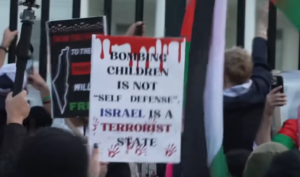
Winslow Myers, syndicated by PeaceVoice, is the author of “Living Beyond War: A Citizen’s Guide” and serves on the Advisory Board of the War Prevention Initiative.
